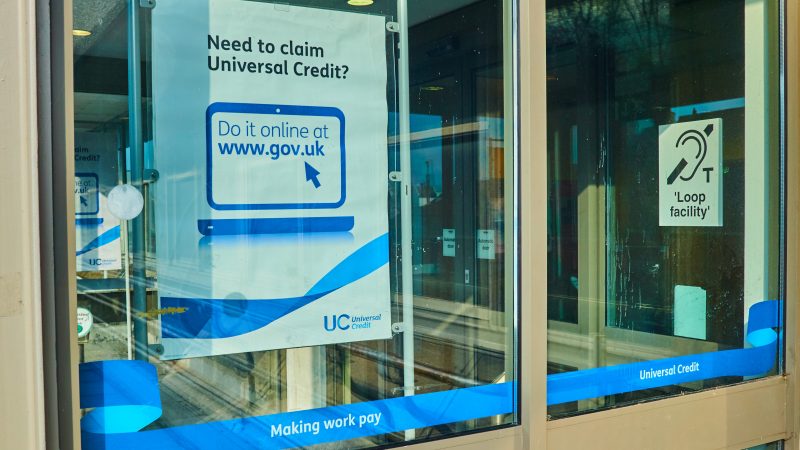
New research has found that 95% of those who will be pushed into poverty by the cut to Universal Credit and Working Tax Credit planned by Rishi Sunak this year are in working or disabled households.
Following the publication of the Fabian Society report Who Loses? today, supported by the Standard Life Foundation, the Labour affiliate has said the £20-per-week reduction to the benefit “raises fundamental questions of justice”.
Analysis found that 87% of the cut, £5.5bn, will fall on working and disabled households, while half, £3.2bn, will hit homes where someone is in work. Households with someone in employment will make up 65% of all those pulled into poverty.
Commenting on the findings of the report, Andrew Harrop warned that scrapping the £20-per-week uplift, introduced to help people cope with the pandemic last year, will “overwhelmingly punish working families and disabled people”.
The Fabian Society general secretary added: “The Chancellor’s planned cut will strip £1,000 per year from six million families and plunge three quarters of a million people into poverty.
“Some politicians like to pretend that social security is just for the work-shy. But the reality is that millions of working households need benefits and tax credits to make ends meet, as do disabled people who are out of work through no fault of their own.
“If ministers are considering a few months’ temporary extension to the Universal Credit uplift, that just isn’t good enough. The 2020 benefit increase must be placed on a permanent footing.”
The Chancellor introduced the increase last March. It is not available to those on legacy benefits: child tax credit; housing benefit; income-related employment and support allowance; income-based jobseeker’s allowance; income support.
It took the standard rate for a single claimant on Universal Credit for those over 25 from £317.82 to £409.89 a month. The extra support, worth over £1,000 annually to each household, is currently set to be withdrawn in April.
The paper published today shows that people who are not expected to be job hunting – those already in work or disabled – will be the main long-term victims of Sunak’s insistence on scrapping the uplift.
Challenged recently on the planned reduction to the benefits, at a time when the Office for Budget Responsibility has forecast that unemployment will peak at 7.5%, Dominic Raab insisted the uplift was “always a temporary measure”.
The latest analysis found that 57% of the cut (£3.7bn per year) will fall on households with a disabled adult, families with children will be hit by half the cuts (£3.2bn) and households where someone is a carer will be hit by 12% (£700m).
Standard Life Foundation chief executive Mubin Haq described the £20 uplift as an “essential lifeline” for low-income families over the last year and explained that, even with the increase currently in place, many are struggling.
He said: “If the Chancellor reverses the uplift in this March’s Budget, the cut will come into force just as the government’s main pandemic support schemes come to an end. It will be a blow to many who rely on it to make ends meet.”
Recent research by the Resolution Foundation found that scrapping the uplift will disproportionately impact those households on low incomes, with around 60% of those expected to lose out being in the bottom 30% of the income distribution.
The all-party parliamentary group on poverty, chaired by Tory MP Kevin Hollinrake, released a report earlier this year calling on Sunak to keep the increase in place and widen the uplift to include the two million people on legacy benefits.
Labour forced a vote in parliament last month calling on the government to maintain the increased UC rate. The non-binding motion passed with 278 votes in favour and none against after the Prime Minister ordered Tory MPs to abstain.
65 northern Conservative MPs, many representing ex-Labour ‘Red Wall’ seats, ahead of the debate publicly called on Downing Street to extend the increase in social security payments during the Covid pandemic.
But only six Tories, not including Hollinrake, rebelled to vote with Labour. With no MPs opposing the motion on the night, Labour had to force a ‘division’ in the House of Commons to have the results of the vote properly.




More from LabourList
‘SEND reforms are a crucial test of the opportunity mission’
Delivering in Government: your weekly round up of good news Labour stories
Labour place third in Gorton and Denton by-election as Greens gain seat